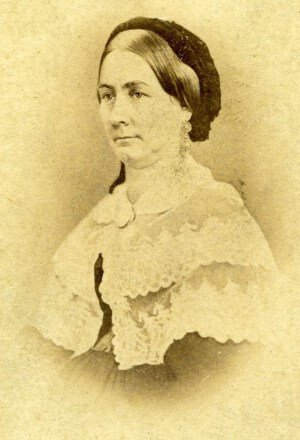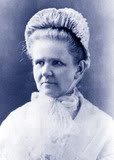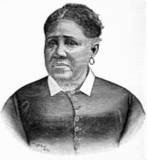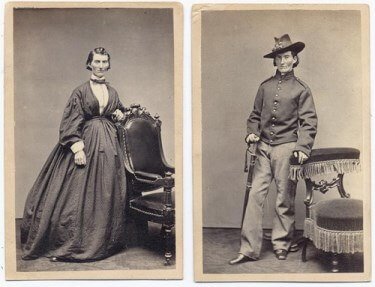Of all the spunky ladies I love to write about, Lucy Nickolson Lindsey of Missouri was one of the spunkiest. She was difficult to research. I could find nothing about her birth and death, but I did find lots of information about one incident in her life. And I just have to tell you about it.
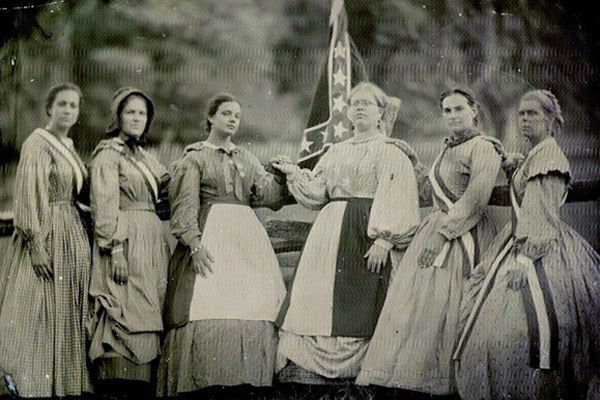
During the Civil War, Missouri was a border state. Yankees and Rebels commingled all over the state, and it was difficult to tell friend from foe. Missouri was under martial law, and the Provost Marshals ruled absolutely. All legal processes and civil rights we think of as normal today no longer existed.
In August 1861, Confederate General Sterling Price occupied Springfield, Missouri. There existed in that area an underground system of communications and supply from Jefferson City to Springfield.
The Nickolson house was one of the stops along that system. One day Lucy opened her door to two men. They gave her a message from General Price that they were out of morphine and quinine for the wounded, and that they badly needed clothing.
The brother of one of the operatives in the underground owned a general store/drug store in Boonville, the county seat of Cooper County, where Lucy lived. She traveled to that town and told the brother about the shortage of medications. He insisted that he could not supply them, but that he had to go downtown right away. She took his hidden meaning, and took nearly all of the morphine and quinine in the store after he left.
And then, she went to the dry goods store. She knew the owner very well, and told him that she needed gray flannel and black velvet. She told him she could not pay for the fabric, but he wrapped it for her and she left store.
Lucy and a friend made a very full gathered skirt with the flannel, hiding 22 pairs of knitted socks in its folds. The fashion of the time was for women to wear rolls of velvet on their heads. She made two large rolls and filled one with morphine, and the other with quinine. She placed one on the back of her head and the other on the crown. Wearing that outfit, she and her brother left for Boonville. Along the way, they encountered some Federal soldiers. She told them that she was on her way to see a sick aunt, and they let her pass.
On her way back home, she stopped to stay with a friend when news came that a large detachment of Yankees were headed her way. She and her brother had to leave for home in the middle of the night. Soon after they got home, a neighbor told Lucy that the Provost Marshal was on his way to arrest her. Someone in Springfield had written to their friends about Lucy’s escapades. She was arrested and taken to Boonville, but an old friend in the Union Army, overruled the marshal and set her free.
She then went to Boone County and taught school there during the winter. Many of her Confederate friends visited her. Again, the Unionists arrested her, after she came home from church one Sunday. Before they took her away, Lucy quickly wrote a note to the lady with whom she was boarding, telling her to burn everything in her trunk.
Lucy was sent to St. Louis, which was very much a city of divided loyalties. She was taken before a Provost Marshal Dicks, who tried to get her to tell him about the morphine and quinine. Knowing that many others would be in trouble if she told, she said nothing.
He sent her to Gratiot Street Prison, the main Union prison in St. Louis. The building was designed to hold 1200 people, but over 2000 were housed there at times. At some point, each prisoner would be taken before the Provost Marshal and were forced to sign an oath of allegiance to the United States.
Provost Marshal Dicks announced one day that all women prisoners guilty of disloyalty must be banished from Union territory. Most of them had children that they were forced to leave behind. The children were brought in to say goodbye to their mothers. The women were taken by boat to Memphis, where they were told, “Now, you are in your own country; you will have to depend upon it for something to eat and something to drink.”
One of the Federal soldiers gave Lucy a cup of coffee, and said, “It is dreadful; I have children of my own and I know what it is.” That evening, Lucy’s group stayed in a farmhouse, where they received their first meal in days.
The women were eventually taken to Arkansas, where Lucy married a Confederate Major named Lindsey. I’m sorry to say that I have no idea who he is. They were in Louisburg, Arkansas, where Major Lindsey was commanding the post, when three or four hundred women and children came to the post, begging for food. Major Lindsey sent to the quartermaster’s office and had all food that could be spared brought to the starving civilians.
I regret to have to tell you that this is as far as my research will take us. I hope it isn’t too disappointing. I thought the merits of the tale overshadowed the lack of information about her life before and after these incidents. If anyone has any information about Lucy, please email me.


